Having a nervous breakdown was one of the best things that ever happened to me.
Before reaching the absolute end of my stress threshold, I never thought that finding inner peace – especially for a highly sensitive person prone to anxiety – was possible. Peace was a completely foreign concept to me.
But after undergoing multiple instances of mental breakdown, I finally learned what inner peace is (and isn’t). And it’s not what I expected.
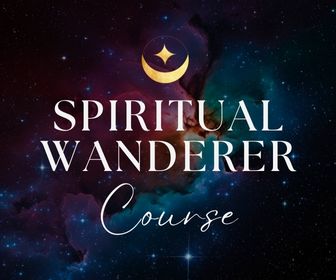
Spiritual Wanderer Course:
Find your deepest path and purpose in life as a spiritual wanderer. In this immersive course, you get 3+ hours of content, workbooks, meditations, a premium test, and more!
As a highly sought-after state and experience on the spiritual journey, inner peace is every spiritual seeker’s secret desire.
But what actually is it? And how do we ‘find’ or ‘attain’ it?
Table of contents
What is Inner Peace?

Inner peace is what we feel when our body, mind, heart, and soul are at rest. Instead of striving to control or resist ourselves and others, we feel a sense of profound acceptance, forgiveness, love, and compassion for ourselves, others, and all of life. Inner peace is synonymous with being in touch with your True Nature: it is a state of inner rest. Perhaps most importantly, and above all, inner peace can only and ever be found in the present moment (which is all we truly have). And yet, many of us live with the assumption that inner peace can only be found “out there” in some perfect future state of being – but this very belief perpetuates our lack of inner peace.
The Key to Finding Inner Peace
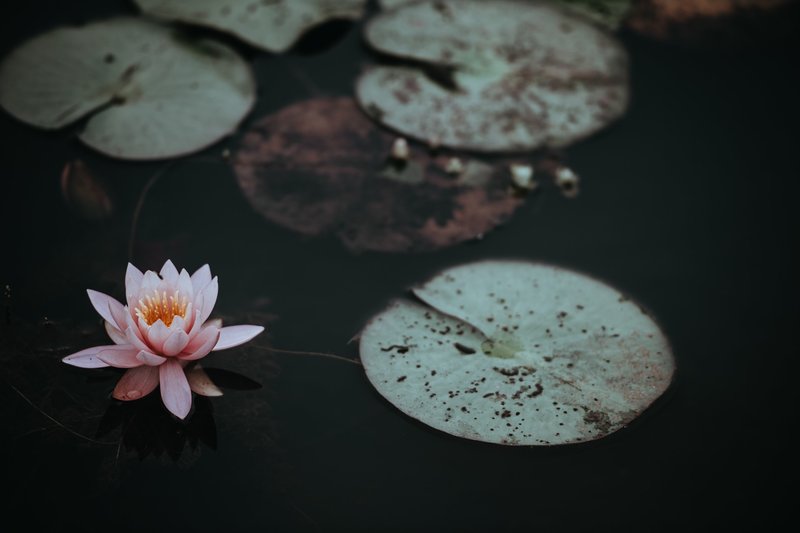
Put simply, inner peace is the byproduct of letting go and surrendering to whatever this moment, this every-changing movement of life, presents to us.
Inner peace isn’t about chasing, striving, and trying to ‘earn’ tranquility. You can’t. Trying to ‘fight’ for inner peace is contradictory and pointless: it just deepens our suffering.
Instead, finding inner peace is about relinquishing our need to control and fight. Essentially, you could say it’s about giving up – but not in a disempowering way. Rather, it’s a form of resignation that is based on a deeper understanding that Life is perfectly orchestrating everything we’re experiencing based on a deep wisdom we cannot possibly fathom – typically for our growth and healing. Therefore, why the need to constantly resist everything?
“But doesn’t this mean I’ll become a pushover or doormat that people can abuse if I just ‘let go’?” you may wonder. No. Living life from a place of letting go and surrendering isn’t about allowing ourselves to be used or abused. We still need to practice self-care, self-respect, and self-love. This can mean setting boundaries, saying no, and removing ourselves from harmful situations. But letting go also means surrendering our resentment, blame, and hatred toward others. Do you see the difference? Life is about balance.
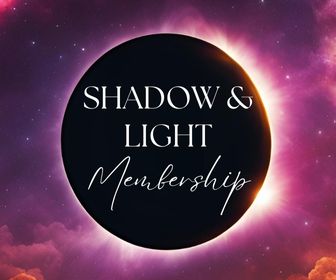
Shadow & Light Membership:
⭐️⭐️⭐️⭐️⭐ "Straight from the very first weekly email, this has been mind-blowingly powerful, the synchronicity and the on-vibe contents resonate uncannily with my soul’s current challenges." – Marie
Let’s try a simple exercise that will help you to understand what inner peace feels like on a visceral and embodied level:
Sit down somewhere quiet. Then tense up your entire body. Imagine you’re being scrunched into a tight ball. Hold that for 10 or 20 seconds. Become as contracted as possible. Make yourself super stiff and uncomfortable. Then, totally release that full-body contraction. Let go. Can you feel how spacious your body is now? That’s what inner peace is like – except it radiates from the inside out.
12 Ways to Find Inner Peace

As we now know, inner peace is a movement of opening, surrendering, and letting go.
But what exactly do we let go of?
As always, let’s look within ourselves first and see all the forms of inner conflict we carry. This practice might be painful and challenging for our egos to handle, but it’s profoundly important.
Here are twelve ways to find inner peace summarized:
- Be aware of the self-improvement treadmill
- Stop expecting that life and people should be different
- Release grudges and resentments
- Sit with your emotions (and embrace them)
- Realize that you are not your thoughts or emotions
- Be aware of your obsessive need to control
- Embrace being dislikable
- Let go of playing the martyr or victim
- Forgive yourself (and therefore others)
- Understand that you don’t need to be “perfect”
- Release the need to be right
- Stop dwelling in the past (or future)
I’ll elaborate below:
1. Be aware of the self-improvement treadmill

To prevent this article from becoming another “X-Ways-to-Change-Yourself” kind of post, I want to point out that the spiritual search itself can be counterproductive. The desire to constantly improve, fix, and heal ourselves can (very quickly!) become a kind of treadmill that entraps us.
Of course, there’s nothing wrong with seeking growth and change. But please know that at a core level, you are already Whole. Your mind might be fragmented, yes, but your essence is already Whole and Complete. Place your hands gently over your heart, close your eyes, and sense into this innate wholeness and Oneness within you for a moment. Can you feel it? Can you sense that original innocence that you were born with?
Truly understanding and feeling the reality that you are already whole can save you from experiencing tremendous stress and burnout. After all, chasing an idea of perfection and running after the experience of inner peace itself paradoxically prevents you from experiencing it (because the peace you’re seeking is already right here, right now, deep within you)!
Would you like to save this?
Your information will never be shared.
So being mindful of this reality, please read the rest of this article with a light mind and heart. Everything will happen when it needs to happen. The following pieces of advice are simply pointers and places you can decide to explore and delve into at your level. No stress, no rush.
So with that caveat, let’s move on to the next mental contraction that deprives you of peace:
2. Stop expecting that life and people should be different

Here’s the reality: you can expect, and expect, and expect, and expect … but what happens at the end of the day? You feel worn out, resentful, bitter, stressed, and hopeless. What a waste of time, energy, and effort!
So much of our unhappiness stems from expectations. And usually, our expectations are totally unconscious; in other words, we aren’t aware that we’re demanding so much from other people and life itself.
Why are expectations burdensome? Expectations change nothing at all: they are like brain farts. Can you change other people? No. People only change when they decide to. And that’s just life. Understanding this is the beginning of inner peace.
Reflection:
Would you prefer to resist the truth of this present moment, or would you prefer to become an embracer of reality?
Try to pinpoint what lofty and unrealistic expectations you have for other people. Here are some examples, “My husband should be tidier,” “My boss should care more about my feelings,” “My friend should not be such a loudmouth; I wish she could be different,” “That driver should learn how to drive properly!” etc. Notice the prevalence of the word “should” here.
What to do instead? Let people be what they are. Understand that when the time is right, they’ll change (or not, but that’s their responsibility!). Ultimately, it’s not your place to force change within other people, because you can’t! (this doesn’t mean you can’t healthily communicate your needs) People only change if they want to, and that desire to change can only bubble up from deep within themselves (you can’t manufacture that for them!).
3. Release grudges and resentments

Grudges + resentments = self-righteousness … and let’s face it, feeling righteously indignant is extremely addictive in a toxic way.
When we obsessively store away past wrongdoings that others have committed, we are essentially telling ourselves, “I have the right to perpetuate my own misery.”
But here’s the thing, on your deathbed, will you really care about who is right and who is wrong?
Holding on to grudges is not only infantile, but it is also poorly spent time and energy.
Reflection:
Visualizations and rituals can help you to let go of past hurt and start a fresh chapter in life. For instance, you may like to write down what someone did to you on a piece of paper. Once you’re done, burn that piece of paper in a fireproof dish and watch as it crumbles into ash. This is a powerful ritual that can help symbolize “letting go” of a past grievance.
Alternatively, you may like to focus on cultivating forgiveness by learning how to forgive yourself first. Self-forgiveness always starts with the simply willingness to let yourself off the hook and is followed by the development of self-compassion through practices such as listening to your inner child‘s needs and affirming your worth.
4. Sit with your emotions (and embrace them)
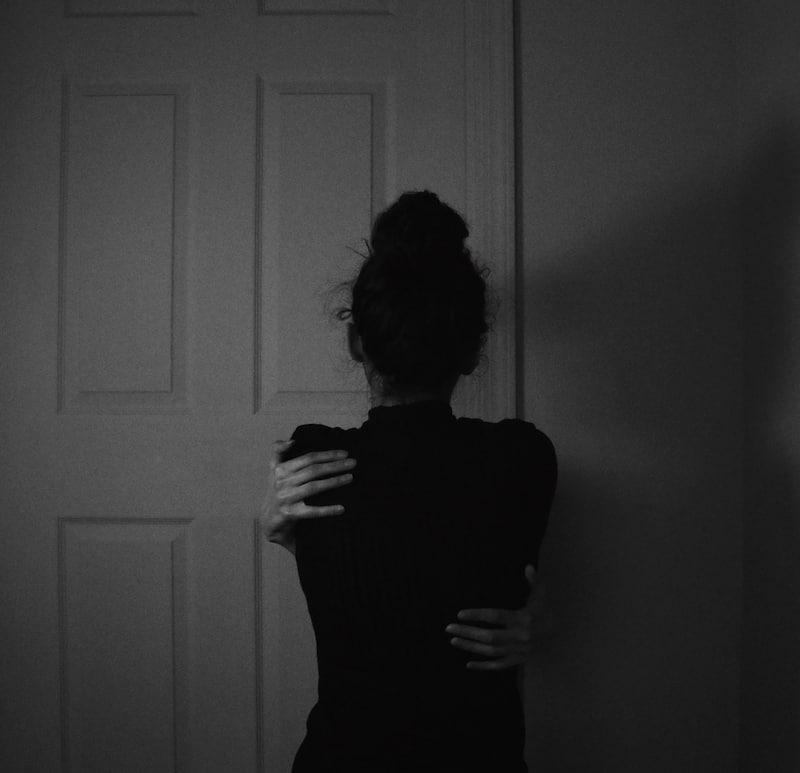
Most people dislike sitting through uncomfortable emotions, so it’s quite a common human tendency to suppress, resist, or avoid any feeling that brings up pain.
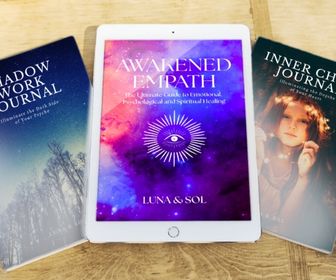
Spiritual Awakening Bundle:
Find your spiritual purpose. Deepen your self-understanding. Learn to embrace who you are. Let us show you how …
Unfortunately, avoidance creates emotional repression which leads to issues like anxiety, depression, psychosomatic illnesses, and other problems that make it too easy to lose touch with our inner peace.
Here’s the thing: hiding your feelings isn’t the same as dealing with them. Just because your feelings temporarily disappear doesn’t mean that they are completely gone. In fact, the longer you suppress them, the bigger they grow. And the bigger these emotions become, the more you feel an extreme lack of inner peace.
Reflection:
Find a quiet place, then choose to gently and compassionately let your emotions arise without resistance or judgment. If you struggle to allow certain big emotions arise (like rage or grief), focus on smaller uncomfortable emotions like annoyance or boredom.
Most importantly, remember that your emotions arise inside of you, but you aren’t your emotions; you’re the space experiencing them. If judgments or thoughts come about the emotions you’re experiencing, let them rise and fall away. Remember that like your emotions, your thoughts aren’t you either, you’re simply the space or consciousness experiencing them.
While it may be quite difficult at first to let yourself feel your emotions, you’ll be grateful you did so in the long run.
5. Realize that you are not your thoughts or emotions

We are the space in which thoughts appear, play, and dissolve like clouds drifting in the infinite sky.
– Mooji
As I mentioned above, you are not your thoughts or emotions: you are the space experiencing them. How can anything so changeable that is here one moment and gone the next truly define who you are or actually be you?
However, strangely enough, most of us are so identified with and attached to our thoughts and emotions that we automatically see them as inseparable from who we are. We get so swept up in the stories and beliefs that our minds generate, that we are internally tossed to and fro as though we’re in the middle of a raging storm. One moment we’re feeling happy, and the next, we’re feeling depressed and grief stricken, all because we’ve automatically believed that the thoughts in our heads are true. No wonder we suffer so much as a species!
But here’s the thing, you don’t need to believe your thoughts! You don’t need to take your emotions so seriously! After all, do you sit there and plan to think and feel everything that arises within you? Do you intricately compute and calculate the precise moment an idea, image, memory, or surge of emotion comes into your awareness and to what exact degree or intensity? No!
The reality is that you don’t choose your thoughts: they are spontaneous movements of energy that burst into your awareness one moment, and fade away the next. How can your thoughts truly define you?
In my experience, what is more liberating than believing that we can “think happy thoughts” all the time (we can’t) is to simply realize that we aren’t our thoughts, and to learn to be aware of this fact. This realization, when deeply internalized, is profoundly freeing!
Accessing inner peace becomes so much easier when we can release attachment and identification with our thoughts and emotions. We begin to realize that we aren’t the content, we are the context. We are the vast non-dual field of awareness prior to any thought or feeling, and there is great mental, emotional, and spiritual liberation in recognizing that.
Reflection:
Disidentifying from thoughts and emotions is a process that takes time, and can’t be done without some level of meditation. Spiritual teacher Jeff Foster defines authentic meditation as “Pure fascination with this moment, exactly as it is.” So learn to be curious about what is happening right here and right now. What sensations can you feel? What sounds can you hear? What emotions form a faint backdrop? What thoughts pop up? You can even note these experiences if you like (this is called the “noting technique”) to help you access more inner space and clarity.
6. Be aware of your obsessive need to control

As a former ‘control freak’ myself (okay, I still haven’t fully released this habit!), I know how much it sucks to be in a frazzled, wired state constantly. If you have the obsessive need to control everything, you’ll be a master planner who tries to predict and push every situation into what you want or feel you can handle. Of course, this equals humongous loads of stress and anxiety – the antithesis of inner peace.
Reflection:
The desire to control is a product of fear, distrust towards yourself, and your ability to handle whatever life throws at you. Once you come to believe in the innate resilience and strength of your spirit, you will start to trust yourself, and therefore you will open to life. You can read our article on finding your inner strength for more help. The obsessive need to control is also closely tied to being a perfectionist. Learning how to love yourself and healing the core wound of “being unworthy” is a powerful antidote to perfectionism.
7. Embrace being dislikable

Inner peace begins the moment you choose not to allow another person or event to control your emotions.
– Pema Chodron
Wanting to be liked by everyone is a big hangup in our society. In a world where we’re taught to gain our self-worth from external achievements and how popular we are, it’s almost inevitable that nearly all of us fall into this trap.
We let our fear of what other people think of us control our lives. Others’ perceived thoughts become our prison cells.
Due to our conditioning and societal values, many of us have such a weak foundation of inner self-worth and love that we almost always seek it from sources outside of ourselves. When we override our authentic selves to be more likable and acceptable, we give away our personal power.
Reflection:
Learn to accept being unacceptable to others. Learn to embrace the absolute worst: being disliked. This doesn’t mean being an asshole, but it does mean learning to honor your needs and wants.
Picture the very worst that could happen if someone disliked you, e.g., “My conversations with them may be awkward, they may gossip about me, they may publicly humiliate me …” etc. But can you deal with that? Could you survive it? Could you let it make you grow stronger? I’d hazard a guess to say yes, you can!
The most essential part of embracing being dislikable comes from the practice of self-compassion. When you embrace yourself, when you’re kind toward yourself, when your self-worth comes from the inside, you no longer depend on what other’s think of you so much – that becomes irrelevant. Start with the practice of self-love and compassion, and everything else will fall into place.
8. Let go of playing the martyr or victim

Adopting the role of a martyr or victim in any circumstance is an act of self-sabotage on an unconscious level.
What is a victim? A victim is someone who believes that they have no personal power and that they are a casualty of fate. They are defined by self-pity.
What is a martyr? A martyr is a person who sacrifices themselves unnecessarily for others, using this as a form of manipulation. They are defined by self-sacrifice.
Both of these roles sustain chaos and stress – the opposite of inner peace.
Reflection:
Think about the beliefs you have about yourself, others, and life. Victims and martyrs are sustained by a barrage of unrealistic, illogical, and harmful beliefs such as, “I can’t change my destiny,” “Humanity is always selfish,” “Life is against me,” “My self-worth comes from how much I give,” and so forth. Overcoming victim and martyr mentality requires a 360 degree inner shift that involves embracing personal responsibility, learning how to love yourself, doing inner child work, and working through personal shadows that keep you stuck in a small and disempowered space.
You can see our article on overcoming the victim mentality for more guidance.
9. Forgive yourself (and therefore others)
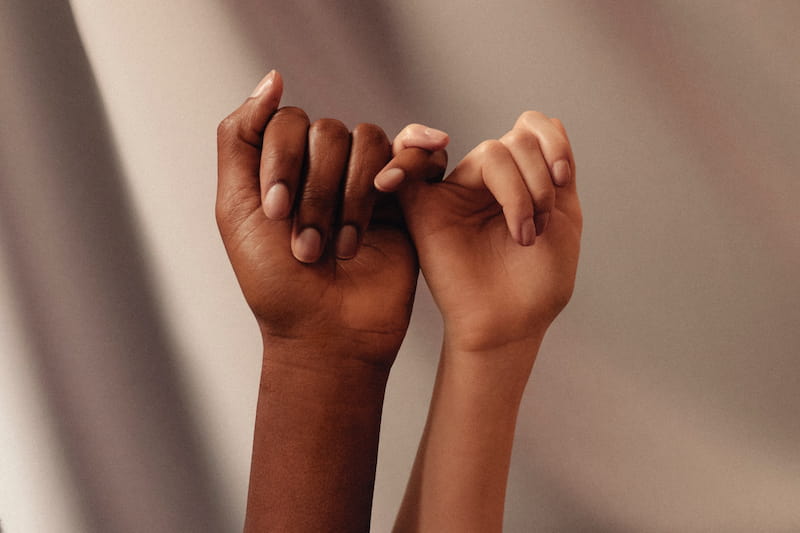
Refusing to forgive yourself for any past mistake, mess, perceived failure, flaw, or deficiency is often a product of low self-esteem. And when we go to the roots of this low self-esteem, we often find toxic core beliefs that tell us that we’re “innately bad,” “not good enough,” and so forth.
Unfortunately, a lack of self-forgiveness also means that you’re more likely to hold onto resentment and bitterness toward others. Why? When we don’t know how to forgive ourselves, we don’t know how to forgive others. How can you give to others what you yourself lack?
Reflection:
Learn to become your own best friend. Start the journey of learning to practice self-care and self-love. You’re with yourself 24/7 – so remember how important it is to treat yourself kindly. You’ll also benefit from closely examining your core beliefs if a lack of self-forgiveness is an issue for you. Beliefs such as, “I am bad,” “I deserve to be punished,” “I am unlovable,” “I’m a screw up” and so forth, are often at the core of a lack of forgiveness toward yourself and others. Learning how to work with your inner child and exploring authentic affirmations can support this healing work.
10. Understand that you don’t need to be “perfect”

Perfectionism promotes chronic stress and burnout. Personally, I’ve spent a lot of my life wanting to do everything perfectly, say everything perfectly, and essentially be the perfect person. What a waste of time!
We intellectually know that no one can be perfect, but yet somehow, we still hold ourselves to this unrealistic standard (usually unconsciously).
If you’re never quite happy with what you do or who you are, chances are you are a perfectionist. Remember that there really is no such thing as perfection in life, as life is about growth and change. Perfection, on the other hand, is an unchanging state, a state of death, a state that is not possible in life for us to achieve.
Reflection:
Understand that there’s no such thing as perfection – it’s totally mythological, false, and unrealistic. It’s okay to be imperfect. It’s okay to have flaws. In fact, embracing your flaws through practices such as shadow work will make you more attractive to others. People are drawn to vulnerability. Remember that. Most importantly, embracing your imperfection will help you to feel more inner peace.
11. Release the need to be right

I grew up in a religious family that always felt the need to protect their sense of being “right,” even to the point of constantly arguing and viciously debating among themselves and other people of different perspectives. It wasn’t long before I adopted the habit as well (and have since worked hard to release it).
It is absolutely exhausting trying to protect your need to feel “right” and superior to others. Embracing the possibility that you might be wrong breeds open-mindedness, empathy, humility, and inner peace. We are not always right, and that is okay.
Reflection:
Understand that you can actually learn and grow from accepting that you’re wrong. Refusing to be wrong or mistaken leads to a type of inner stagnation – a form of inner death where you are firmly and stubbornly locked in one position. That sounds kind of like being a frozen corpse to me.
The nature of life is change and transformation. Yes, being wrong is a sting to the ego, but that’s much better than staying in an egotistical, dead-ended position of rightness that steals your inner peace.
If you struggle to release the need to be right, you can always try a practice such as morning affirmations. Affirmations help to reprogram unconscious habits that keep us trapped in fear and suffering. Adopting an affirmation or mantra such as, “It’s okay to be wrong,” “I accept the pain of learning and growing,” or “I embrace the innate humility within me” will help you open to new perspectives.
12. Stop dwelling in the past (or future)

There are many reasons why we choose to live in the past or future, but all of them are pointless. Living in the past is living in death because we dwell in what was rather than what is right now.
The more we are stuck in the past, the less we can truly live our lives to the fullest in the present. The same applies to the future: it hasn’t happened yet. Stop delaying your joy and inner peace for some fantastical moment or idealistic situation in the future that will probably never happen!
The simple fact is that the past and future don’t exist in this present moment; all that exists right now is NOW. While this makes sense to most people, most of us don’t take it to heart. By getting lost in past regrets or future fears, we completely lose touch with the grounded present moment. Inevitably this disconnection from the here-and-now results in heartache, tension, and overwhelm … the stuff nervous breakdowns are made of!
Perhaps the biggest danger of dwelling in the past or future is that you never truly feel alive in the present moment (which is the only moment). Not only can’t you feel grateful for what you already have, but you also can’t absorb the innate magic and beauty of life around you. Dwelling in the past or future is a huge reason why so many of us lack inner peace.
Reflection:
Practice gratitude, which means finding joy in what you already have right now. One way I incorporate gratitude into my daily life is by keeping a “gratitude stone” near my bed. Right before I go to sleep every night, I think of at least five things I was grateful to have experienced during the day, and I let the feelings of joy and satisfaction wash over me. (See our article on being grateful for more guidance.)
Learning mindfulness exercises which can help you stay connected to this present movement of life will also be extremely valuable. While focusing on your breath is a popular way to stay grounded, I personally prefer to feel the ground beneath me or listen to sounds – so feel free to try this out if mindful breathing has never resonated with you!
Other Ways of Experiencing Inner Peace

Now that we’ve explored the main inner mindsets and habits that create suffering, and some healing reflections and practices, here are some other simple and supportive inner peace practices you can explore:
- Spend time often in nature – this is a powerful way of connecting with your inner wellspring of peace and tranquility. If you don’t have access to a park, woodland, or other natural space, spend some time gazing into the sky. Watch the clouds come and go or any birds that fly by. You can even listen to a sounds of nature recording to remind you of the deep and innate peace found in nature, and also found within yourself (because you are nature!).
- Make space for solitude – spending time alone helps you to re-orient to your heart and soul’s innate serenity. When we’re in loud and busy places, it can be hard to tune into the still and soft voice within. Solitude helps you to come back home to your Self again. If external solitude isn’t possible for you right now in life, invite the possibility of inner solitude. Perhaps you can walk around with noise cancelling headphones, move throughout your day more slowly and mindfully, or use a mantra to disengage from your thoughts and return to stillness again.
- Embrace essentialism and minimalism – in other words, simplify your life and commitments and prioritize your inner peace. Your external world influences your internal world, and vice versa. Clutter within your personal space often symbolizes clutter within the mind. You’d be surprised how internally spacious you can feel after clearing out, recycling, and donating items that no longer bring you joy.
- Meditate each day – even if you’re not “a good meditator,” realize that there are so many forms of meditation out there to try, from mantras and visualization to dancing and vipassana. Meditation doesn’t have to involve sitting quietly for a set amount of time each day, unless that calls to you. Explore what approach to meditation (which means being present to whatever is happening) appeals to you the most. Is knitting a form of meditation for you? Do you prefer tea drinking meditation, dog walking meditation, singing meditation? Meditation can be incorporated into any facet of life! It doesn’t have to be about sitting on a pillow in an uncomfortable position if that is inaccessible to you. My favorite form of meditation, for example, is nature-watching meditation. Just sitting and observing nature and how it moves (the trees, clouds, grass) brings me indescribably peace and tranquility.
There are many paths to inviting more inner peace into your life, but these are the essentials. I hope they can be of service to you. Feel free to share what has worked for you in the comments!
Inner Peace is About Letting Go

Remember that, at your core, you are the stillness and inner peace that you seek.
Liberation isn’t about searching and seeking: it’s about letting go. It’s about connecting with what’s already and always here beneath the turbulence of the mind.
The more aware you can become of your mind’s contractions and conditioned patterns, the more liberated you will be to dwell in the Ocean of your being rather than just getting caught up in the waves.
Inner peace is not something we chase or achieve “out there in the future”: it’s something we rediscover, right here, right now. That realization itself is a doorway to inner peace.
Has this article helped or inspired you? You’re welcome to share it with a loved one! What is your biggest block to inner peace?
Three paths to inner transformation – here’s how I can help you go deeper:
1. The Spiritual Wanderer Course: Are you feeling lost, adrift, and unsure of your life's purpose? Gain clarity, focus, and direction on your inner path by uncovering the five archetypes of awakening within you. Learn how to navigate the highs and lows of your inner journey and chart your unique path with 3+ hours of audio-visual content, workbooks, meditations, and a premium test.
2. Shadow & Light Membership: Do you crave consistent support on your spiritual quest? Receive weekly intuitive guidance and learn to embrace your whole self, including your shadow side. Cultivate deeper self-love with our affordable, personalized support.
3. Spiritual Awakening Bundle: Ready to embark on a profound soul-searching adventure? Dive into our collection of essential transformative resources! Explore five illuminating eBooks and seven in-depth journals, plus unlock two special bonuses to empower your spiritual growth.



 $3
$3



Beautifully written, beautiful perfect messages for all of us.
Thank you Linda
Impressive article. Best one I read …ever! Just one thing I found…peculiar. 6 h to write an article. I don’t think that is much, especialy the overal theme you write about, the clarity etc. I think it would take me days to write something not even remotly as deep as this one. So don’t be harsh on your self, some times things move slower thank you very much
I appreciate that Victor :) thanks for the words of encouragement. Lots of love
First, I want to let you know that I have enjoyed some of your other work, although I have found the quality a bit uneven from one piece to another. You have good things to say here , but your sarcastic and harsh tone undermine the message. It was a big turn off for me, and I imagine it would be for others who are also sensitive. You hit hard — right to the solar plexus — and that style doesn’t work for everybody. Please try a little kindness, so you can reach those who are so wounded that jokes and sarcasm can send them running for cover, let alone harsh insults, which is the tone of some of the material in this particular article.
I thought it was beautifully written and the unconditional love and acceptance in all of Luna’s work is always present. Like the article says it’s ok to be disliked, it’s ok to not be perfect. I’m also a sensitive soul, an empath. Many people find comfort in humor and sarcasm in dark times. We should all act with love, kindness and acceptance in all things. Especially now, we need each other.
Wow, LL, your response took me by surprise! I had such a completely different experience in reading this post on “Finding Inner Peace”. I connected very deeply to each of the points and solutions discussed; in fact, over my years of self-evolution I have implemented most all of these into my way of navigating life. I have had a HUGE turnaround from the anxious, fearful person I used to be. I have come from a place of daily debilitating panic attacks, zero self-esteem, and allowing others to abuse and take advantage of me, to a person who has deep love for myself and others, has the ability to take good care of myself in any situation, and who can face fear, anger, and other difficult emotions by accepting, rather than running away and suppressing them.
It is ok to have differing opinions, and I respect you and your feelings regarding the presentation of this article. You are right, not every approach is the best for everyone! My hope for you is that you find community and resources that resonate with you, and that propel you forward on your path of self-exploration and growth ❤
I didn’t feel a harsch tone at all in this post. Beeing sentitive is difficult for sure. But at some point I think some people use it as an excuse to hide from some of out own shadows. Holding on to our demones can become a habit, sometimes without us notising it.
I loved this article. Well written. Thank you for the honesty.
Gina
Thanks everyone for your words of support and also varying perspectives. I do sometimes write with a sharp tone, but that’s done intentionally (kind of like giving a slap to the ego to wake it up). The first draft of this article was also written about five years ago, and I have since added to it, so my writing style shifts, changes, and morphs with the seasons. Thanks again for sharing here, much love :)
For those of us who are autistic, deeply sensitive and very hyper aware of everything and overwhelmed at the same time, sometimes a slap to the ego is needed. My brother visited me this week and his whole life is falling apart but he came to listen to me process deep sadness. And in the middle of my crying, which he validated, he gave me some very firm and deep truths that let me release deeper pain because of the real depth we shared. It was profoundly healing. Wounds from a friend can be trusted. ❤️ thank you Luna!
I’m so grateful for having found lonerwolf. I subscribed a few months ago but really just started reading in-depth in the last week or so. My 71 yr old mother passed away a few weeks ago (on the very day the first covid-19 cases were confirmed in my home state) and I’ve really been struggling. I will be posting more regularly, but I didn’t want to delay any longer to say Thank You for everything that you’ve put into this and stirring awareness. It’s exactly what I’ve been needing.
Dear Kim,
I am so sorry to hear of the loss of your mother. It must be so terribly difficult to navigate through your grief, during this wildly chaotic and uncertain time we are experiencing with the pandemic. I have had some major life challenges, too, that have coincided with the pandemic. It has not been easy at all, and I’ve had times where I thought I was “going over the edge”. Remembering to do my grounding practices, and asking for help when I need it has been lifesaving for me.
Love to you, from one human to another, I wish you peace and healing ❤
Kim, sending big hugs for this tough time. And isn’t it beautiful the message of support Christine sent above. Take care of yourself xo
Wow! I really love reading your articles. I have been going through much of this my whole life, but the last 3 years have been especially difficult for me. it seems that you tend to write just what I need to hear at the time, and I am grateful for your shared support to others.
Thank you Timothy, it’s such a pleasure to help ❤️
Sounds like the perfect advice and journey, learning as we go. Wise advice I read here, and healing
The sharing on the 3 types of attachment is really inspiring and I am going to use the tips in the article to learn to let go of attachment.
Thank you <3
Greets! I was reading your articles for a bit this evening and wanted to say it was very cool. I’d like to share a site too. You can learn about who was I in my past life there. Check it out if you’re interested. Thanks!!
Hello there, You have done a fantastic job. I will definitely digg it and in my opinion suggest to my friends. I’m sure they will be benefited from this web site.
Hello. I am a graphic designer. And am absolutely in love with the work of the artist at the top. Could you tell me who they are and how to contact them? Or at minimum where you found that image?
And also. Great work in the article. Your message can open doors for those locked behind things that they do not even understand. Bless you!
Thank you so much for all the loving guidance you’ve posted on your website. This article, and so much more have been influential in my awakening. I love you and appreciate what you’re doing so much!!!!